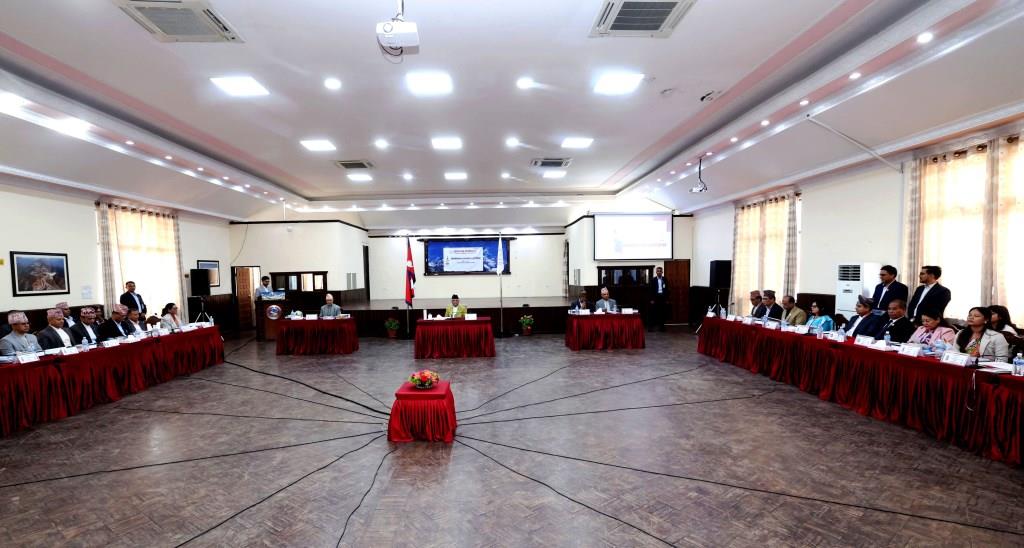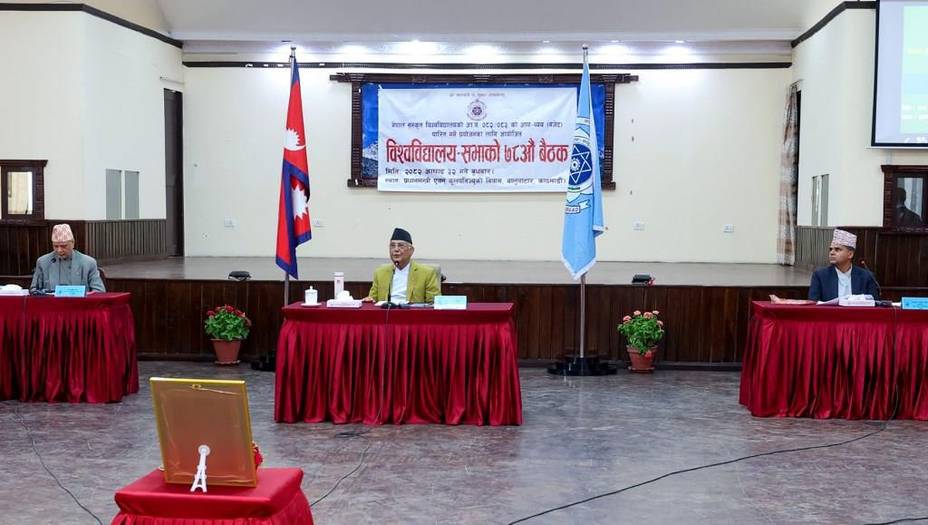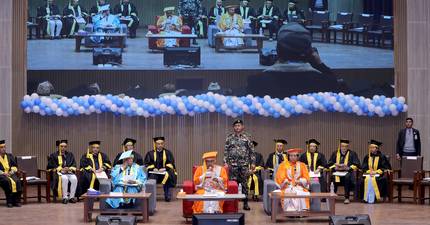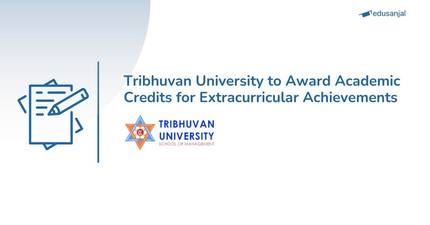Under the leadership of Prime Minister and Chancellor K.P. Sharma Oli, all universities across Nepal have successfully approved their budgets and academic programs for the upcoming fiscal year.
This is probably the first time that all universities and health science institutions have concurrently approved their budgets in a manner that upholds financial transparency and complies with the country’s parliamentary democratic system and existing financial regulations.
On the final day of the current fiscal year (Asar 32, 2082), Nepal Sanskrit University held its 78th Senate meeting, while Lumbini Buddhist University convened its 18th assembly.

On Asar 31, four universities held senate meetings and approved their budgets. On that day, the 13th assembly of Far Western University, the 41st assembly of Purbanchal University, the 15th assembly of Patan Academy of Health Sciences, and the 14th assembly of Agriculture and Forestry University took place, where budgets were approved.
Similarly, on Asar 30, Mid-West University and Rajarshi Janak University conducted their senate meeting, followed by Tribhuvan University’s annual general meeting on Asar 26 and Pokhara University’s 25th meeting on Asar 25. Prior to these, Kathmandu University, Rapti Academy of Health Sciences, and Karnali Academy of Health Sciences had already completed their budget sessions.
Following the recent appointment of Professor Dr. Deepak Aryal as the Vice-Chancellor of Tribhuvan University on Asar 25, the policy discussion meeting planned for Asar 26 was postponed and will be rescheduled for a later session.
This coordinated effort, led by Chancellor Oli, marks a significant academic milestone, the first time in Nepal’s history that all public universities held timely Senate meetings and finalized their budgets before the new fiscal year began.
The trend of submitting unfunded or deficit budgets has been discouraged. Where such proposals existed, they were revised to reflect realistic figures under the guidance of Chancellor Oli, Co-Chancellor, and Minister for Education, Science, and Technology, Mr. Raghubir Pant.
Efforts were also made to end the long-standing delays in audits and the submission of audit reports to assemblies. Chancellor Oli has made it clear that in future, budgets not approved before the start of the fiscal year will not be endorsed post-deadline.
Ghanshyam Upadhyaya, Secretary atthe Ministry of Finance, praised the move, stating that the Prime Minister’s directive to approve budgets before Shrawan 1 has helped establish fiscal discipline and improve collaboration between the government and academic institutions. He also emphasized that this will strengthen financial audits and program coordination.
Professor Dr. Sharda Thapaliya, Vice-Chancellor of the Agriculture and Forestry University, stated that the Chancellor’s clear guidance has helped reinforce academic calendar implementation and promote institutional good governance.
In previous years, many universities struggled to pass their annual budgets on time due to leadership gaps and internal disputes, leading to financial instability. This year, however, Chancellor Oli had been consistently urging timely budget approvals for the past six months.
Despite a demanding schedule that included an official visit to Spain for a UN conference, political meetings, disaster response efforts in Rasuwa, and local events in Jhapa, Prime Minister Oli managed to convene and oversee Senate meetings across all institutions under his chancellorship , setting a new precedent in higher education governance.











